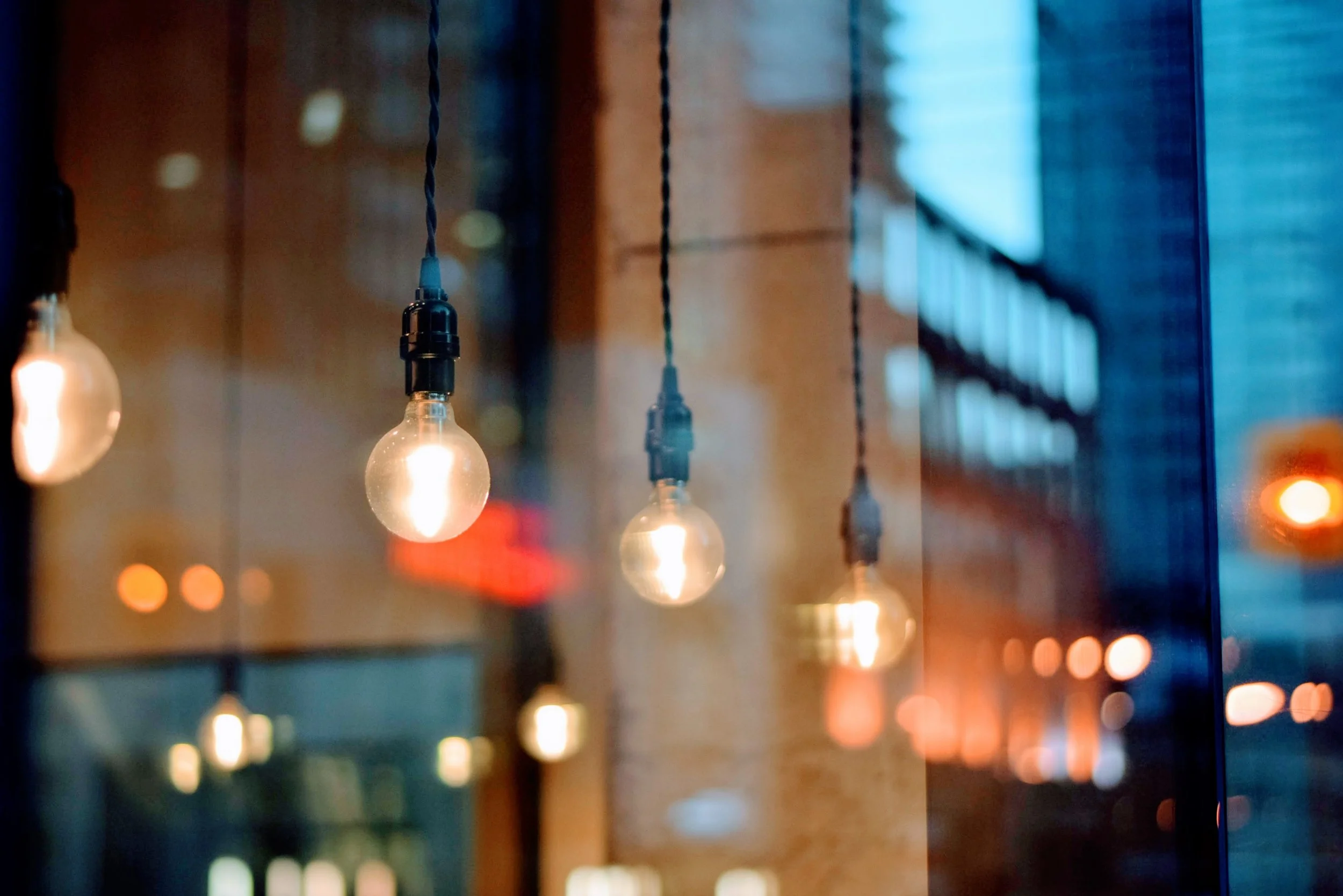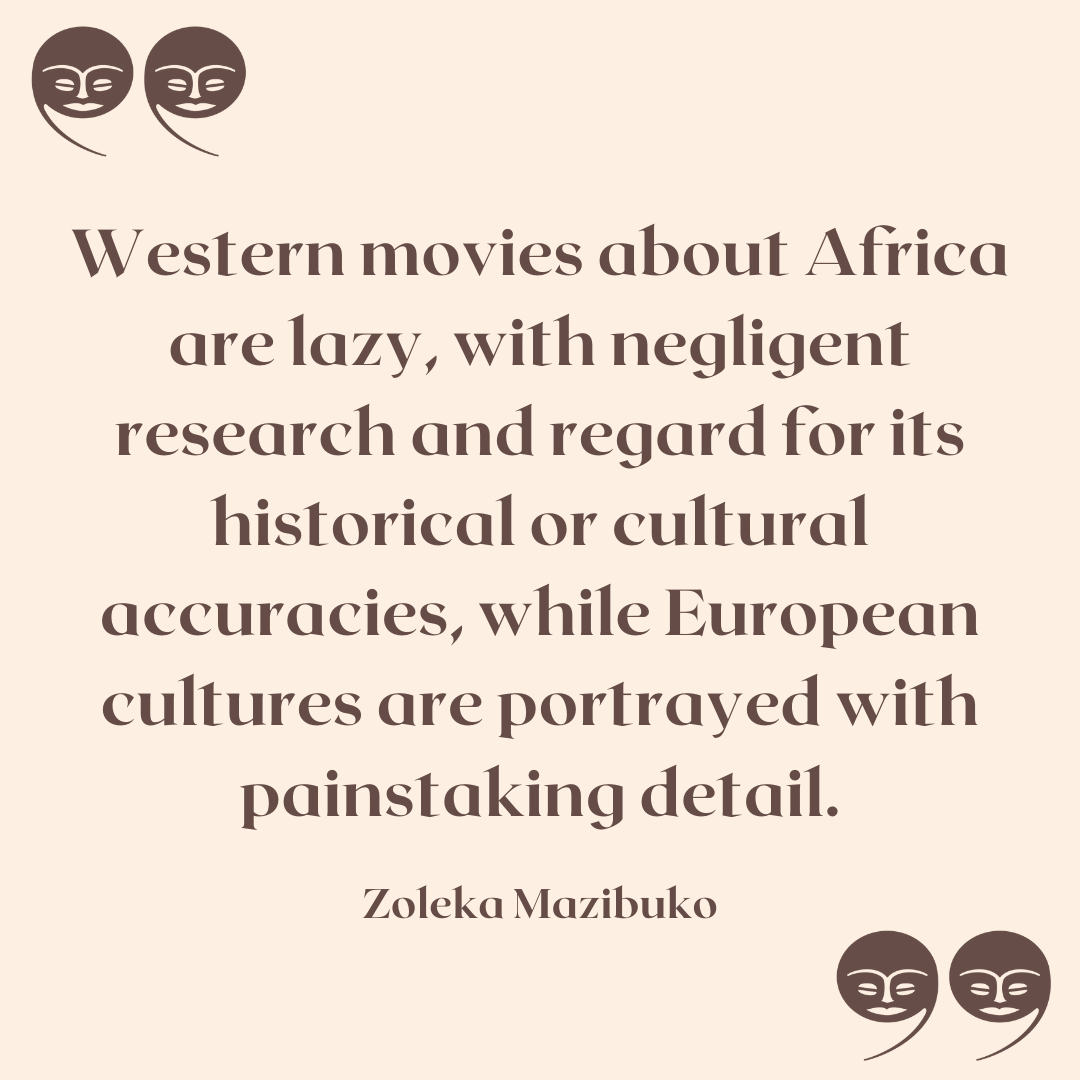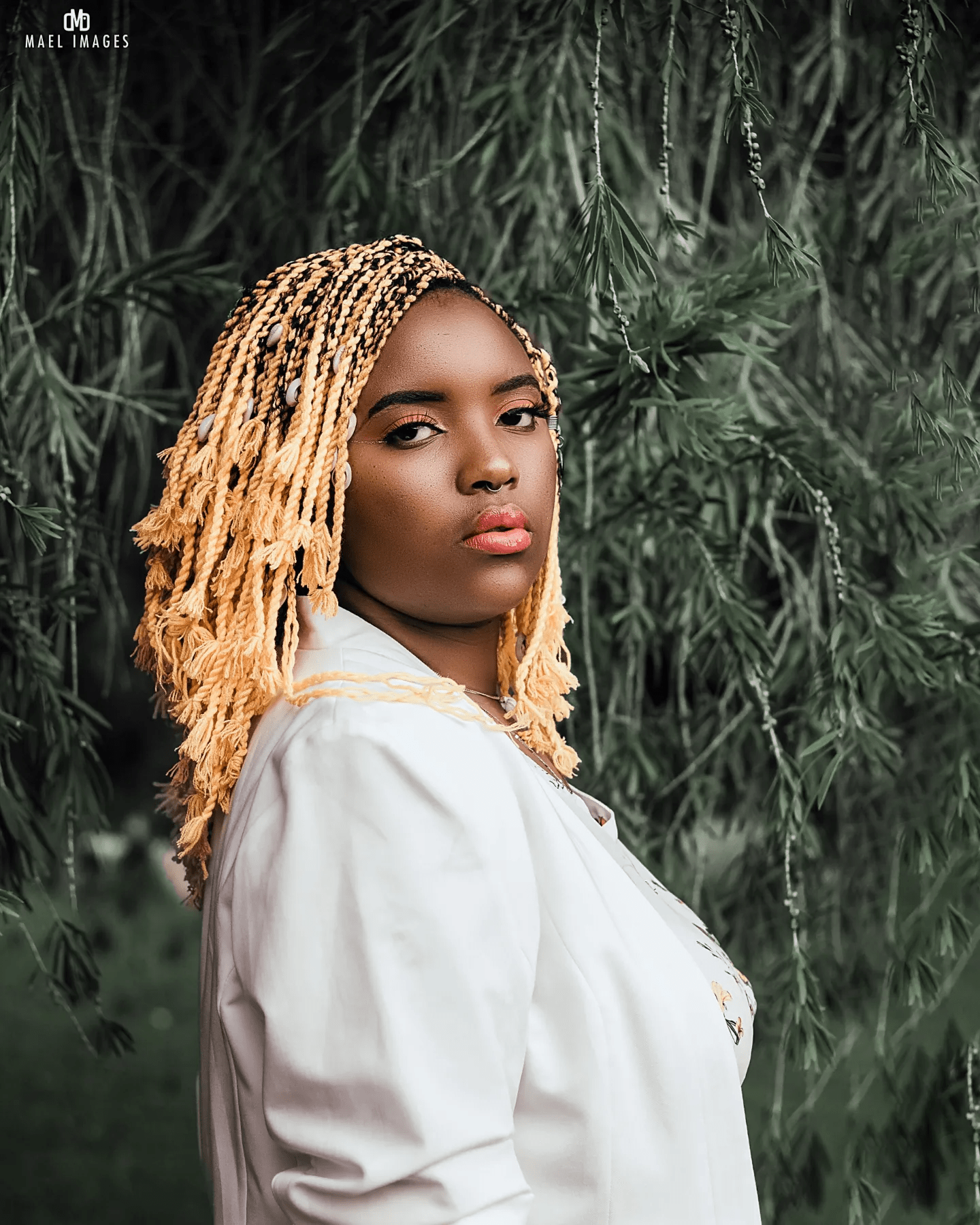“The Woman King is More Nuanced Than You Think” - Zoleka Mazibuko (Zimbabwe)
/Zoleka Mazibuko - Image supplied by author
The Woman King, a recent historical drama situated in the 1800s Dahomey Kingdom (modern day Benin), shines a spotlight on the real all-woman African army nicknamed the “Dahomey Amazons” by Europeans, or Agojie, as locals called them.
Oscar winner Viola Davis stars as the Agojie’s General Nanisca, John Boyega as Dahomey’s King Ghezo, and South African Thuso Mbedu as the feisty Agojie recruit Nawi. The movie has earned $44 million worldwide, but despite its success, it has garnered controversy, particularly about historical accuracy and gender politics. Before we go there, let’s start with cultural accuracy.
Black Panther and Beyonce’s Black is King were films about Africans by Americans for Americans–a way for African Americans to connect to their African ancestry. These films cherry picked aspects of African culture then westernized them to be palatable for a global audience to a point where Africans like myself didn’t relate to it. The Woman King hardly, if at all, does such thing. I say this as a black African woman born and raised in Zimbabwe and South Africa, both in rural and urban settings. When I speak of “African culture” I speak of my lived experience.
Western movies about Africa are lazy, with negligent research and regard for its historical or cultural accuracies, while European cultures are portrayed with painstaking detail. For starters, we as Africans are tired of Western actors being trained into spotless British accents, yet zero effort is put into accurately portraying African accents. For example, T’challa’s father from Black Panther spoke Xhosa, a South African and Zimbabwean language, yet T’challa speaks in a “Nigerian” accent. This was offensive because Western media treats Africa like it’s a country—the film industry has created a generic fictional “African accent” for a continent with 54 countries.
A Long Walk To Freedom (2013), a movie about South African liberation hero Nelson Mandela, and another about his colleague Winnie Mandela (2011) were played by Idris Elba and Jennifer Hudson respectively. Their offensive, remixed version of a “South African” accent left us wondering if their accents were purchased on eBay or Shein. The Woman King cast, however, commendably committed to one specific West African accent throughout, even where we recognise that Benin has about 55 languages. However, some Beninese have pointed out that the movie’s music and dance was derived from other cultures, not Dahomey culture, which reinforces the “Africa is a country” narrative.
Hollywood movies about Africa problematically assume that Black American representation is automatically African representation. The Woman King’s main cast was mostly African: 5 South Africans, 1 Ugandan, 2 Nigerians, 1 Zimbabwean, and Beninese Angélique Kidjo. This is noteworthy, but the lack of Beninese talent in a movie about Benin is disappointing.
Hollywood misunderstands that African American identity is not synonymous with indigenous African identity. Black Panther costumes had a futuristic design, whereas the movie’s Agojie wore striped tunics embellished with a sash adorned with cowrie shells which the historical Agojie were gifted after successful campaigns. A 30m statue of an Agojie woman, in Cotonou (Benin), wears a similarly striped tunic. The difference is the costume designer altered the pants into skorts for practicality. The movie included cultural details only Africans would recognise. Most warriors’ hair was bound with an African threading technique my people call “amabhanzi” that I grew up wearing to school. Some warriors’ hair which looked like red locs are a red clay hairstyle of the Himba tribe.
Film “critics” like Armond White who in his article ridiculed the Agojie army’s rites as “sorority-house celebratory rituals with banshee ululations” as mere novelties, speak from ignorance. The Agojie ululated before attacking the Oyo. African women ululate exactly like that to celebrate and inspire courage. The Agojie recruits walked through thorny acacia brambles in training just as actual Agojie did. They endured initiation rituals as most African tribes do; Xhosa boys for instance, “go to the mountains” to undergo certain rituals initiating them into manhood. I felt The Woman King in my bones because that is the Africa I know. Anyone who ridicules these is a bigot with a one-dimensional understanding of African culture.
However, some are boycotting this film for ignoring the Agojie’s participation in the slave trade under King Ghezo’s rule. People who watched the movie know otherwise. The movie and its trailer explicitly state that it is inspired by true events, not based on true events. The Agojie’s first battle scene ends with innocent villagers, women and children cowering after their bloody attack, showing the brutal side of their legacy. From the outset, General Nanisca (Viola Davis) implores King Ghezo (John Boyega) to stop enslaving people to fund his empire, and instead create an economy based on selling palm oil. This was championed in reality; Council members who allied with the Agojie favoured a palm oil based economy. Without giving spoilers, The Woman King acknowledged the Agojie’s complicity in slavery while reimagining the African dream they should have fought for. You cannot change history, but you can reimagine it.
Critics pretend that the countless biopic movies and series about historical figures portray only morally perfect people. They often glorify abhorrent people, but where was the outrage during their release?
If you will boycott The Woman King, you must boycott The Crown, (which has a whopping 4 seasons) because the British monarchy colonized and enslaved Africans and Asians for centuries. Boycott the Elvis Presley biopic because he was a paedophile sexual predator. Boycott movies about Biblical events because Israelites invaded and enslaved other nations. Historical figures who contributed to society have always been controversial. In our portrayal of them, we must equally acknowledge their positive contributions and their atrocities, just as The Woman King does.
I’m not defending the Agojies’ failings, but the truth is mainstream media vilifies Black people more than White people committing the same acts. Mainstream media highlights African cruelties while ignoring those of the West because it feeds the stereotype of Africans being barbaric, bloodthirsty and the narrative of “Black-on-Black crime.” Europeans did the very same thing to each other. The Roman Empire, for instance; the “World” Wars were essentially “White-on-White” crimes, but history is written by the winners. Media is also harsher on women than men: Chris Brown’s career flourishes despite his abuse while Amber Heard had a smear campaign against her. And thus, the Agojie were reduced to their atrocities to discredit everything else they stood for - like fighting colonisers.
This movie isn’t about Benin’s entire history; it specifically focuses on the badass existence of a real all-woman African army equally feared by Africans and Europeans, something unheard of in Europe. Yes, the Agojie were imperfect, but we shouldn’t erase what their existence meant for Benin and for African women. What it meant for deconstructing a colonially imported misogynoir which created the scam that African women were voiceless and inferior to men. The Agojie fought side by side with another Dahomey male regiment as equals. While white women were begging for property rights, Agojie women were fighting wars and debating policy in the Grand Council. An African empire during the 1600s to 1904 was more progressive than European countries at the time - get over it.
This movie wasn’t made for Black women and feminists to feel good about themselves. It was made to raise the voices of outstanding African women who are historically erased, louder than the volume of General Nanisca’s afro. Commemorated African liberation heroes are typically men, but the bar for African women is higher. African women must be queens who fought colonisers like Queen Nzinga. They must be associated with powerful men like Winnie Mandela who fought as fervently as her husband. They must be revered in their community like Mbuya Nehanda, the only Zimbabwean heroine recognised because she was a spiritual leader carrying the Nehanda spirit revered in Shona culture. But the Agojie were normal women, social rejects even. They deserve to be highlighted to remind African women that even if history won’t remember their name, their existence is valid.
The movie allegedly relies on feminist tropes like “the girl who doesn’t want to be forced into marriage”, but the Agojie really were wives and daughters surrendered to the King for their disobedience. Film “critic” Armond White reduces the movie to a “laughable pseudo-political history lesson pitting women against men” yet the army truly was all-woman and coincidentally, the Oyo army was male-dominated. If you see this historical fact as promoting misandry, you are projecting your own intimidation and suspicion of feminism.
White’s article says “only teenagers should fall for this nonsense” but truly, only old American men with zero understanding of African culture and gender identity should fall for the rhetoric that The Woman King is “immature feminist Afrocentricity.” The film’s alleged “gender flipping” is merely patriarchal Western gender binaries being projected on Africa, yet some of these gender roles never existed in all African cultures anyway. Academic Nkiri Nzegwu in her journal article excellently breaks down how African gender identity has always been fluid using Igbo culture as an example, wherein gender switches depending on role, function and context.
The femininity of King Ghezo’s effeminate male sage was never pointed out as peculiar in the film. This resonated because in my Ndebele culture, monarchs were advised by spiritual leaders who are typically gender fluid because they carry multi-gendered spirits. When a female spirit is dominant at a particular time, a male sangoma is referred to with a female title and presents himself as a woman without question.
The Woman King doesn’t portray Dahomey society as a perfect feminist paradise. It acknowledges that although Agojie were seen as male soldiers’ equals, this didn’t automatically create all-encompassing gender equality for women. Women were shoved into a dichotomy where they could only either be dutiful wives, mothers and daughters, or ruthless soldiers not allowed to marry or have kids - no in between.
Do yourself a favour and watch this inspiring, powerful movie which breaks the glass ceiling of Eurocentric media. I, for one, will rewatch it endlessly until Viola Davis and Thuso Mbedu jump out of the TV screen to ask for water.
Join the conversation!
Zoleka Mazibuko is a BA Law, French and Political Science graduate currently studying her LLB Honours at the University of Pretoria. When she is not running her events management & decor business or writing her feminist African fantasy novel, she paints African feminist art and blogs social commentary opinion pieces with a feminist and African consciousness angle.
We’d love to hear your thoughts. Let us know in the comments below, or let’s chat on Twitter, Facebook or Instagram @EyalaBlog.














